Stress the final syllable in French
If there’s one thing that I would say will improve your French accent in the easiest way possible, it’s this: you should emphasise the last syllable of any word.
What are syllables?
All words are made up of a certain number of syllables. This is true in both French and English. Look at these English words, for instance:
fun (1 syllable)
open (2 syllables = o⋅pen)
inspector (3 syllables = in⋅spec⋅tor)
helicopter (4 syllables = he⋅li⋅cop⋅ter)
inhospitable (5 syllables = in⋅hos⋅pi⋅ta⋅ble)
invisibility (6 syllables = in⋅vis⋅i⋅bil⋅i⋅ty)
In English
In English, each word tends to have one syllable that you stress or emphasise more than the others. For example, if you say the word “intelligent” out loud, you’ll notice that you stress the “tell” part in the middle: in⋅TELL⋅i⋅gent. If you were to stress a different syllable, it wouldn’t quite sound right. Try saying, “in⋅tell⋅i⋅GENT” or “in⋅tell⋅I⋅gent”, and you’ll hear what I mean.
fantastic – fan-TAS-tic
absolutely – ab-so-LUTE-ly
delicious – de-LI-cious
There are even some words in English whose meanings change depending on which syllable you stress. For example, the word “present” has two syllables; if you stress the first syllable (PRE⋅sent), it means a gift, but if you stress the second syllable (pre⋅SENT), it means to give something to somebody, or to be a presenter of a TV show.
“I’m going to give you a present tomorrow”
“Maria is going to present the show”
This happens quite a lot in English:
present – PRE-sent
present – pre-SENT
record – re-CORD
record – RE-cord
perfect – per-FECT
perfect – PER-fect
content – CON-tent
content – con-TENT
project – pro-JECT
project – PRO-ject
But what does all this have to do with French?
In French
In French, it’s much easier than in English; you always stress the final syllable of every word. In 3 Minute French – Course 1, we learnt these two words: parfait (perfect) and délicieux (delicious). When you pronounce them, make sure you emphasise the final syllable. In English, we say PER⋅fect and de⋅LI⋅cious, but in French, you say, par⋅FAIT and dé-li-CIEUX.
Have a look at the pronunciation and stress of these words – I’ve capitalised the stressed syllable:
bonjour – hello (“bon(g)-JSHOOR”)
merci – thank you (“mair-SEE”)
restaurant – restaurant (“reh-stoh-RON(g)”)
garçon – boy (“gar-SON(g)”)
français – French (“fron(g)-SEH”)
madame – Mrs (“mah-DAM”)
I remember when I was in a French airport once, and I was waiting in the queue at the passport control. People were going to the passport desk one at a time, and I could more or less tell who was French and who was not French just by listening to the way they each said, “merci”. The French native speakers clearly emphasised the last syllable: mer⋅CI, whereas the non-French speakers were emphasising the first syllable a little more, and it just made them sound very… well, not French!
This is always the case in French – emphasise the last syllable:
merci
délicieux
absolument
fantastique
normal
Let's practise
How do you pronounce these French words correctly?
- maison (house)
- éléphant (elephant)
- français (French)
- manger (to eat)
- voudrais (would like)
- famille (family)
- fatigué (tired)
- occupé (busy)
- dormir (to sleep)
- s’il vous plaît (please)
- enfant (child)
- résistance (resistance)
- important (important)
- nécessaire (necessary)
- fantastique (fantastic)
ANSWERS
- “meh-ZON(g)”
- “eh-leh-FON(g)”
- “fron(g)-SEH”
- “mon(g)-JSHAY”
- “voo-DREH”
- “fah-MEE”
- “fah-tee-GAY”
- “oh-koo-PAY”
- “dor-MEER”
- “seel-voo-PLEH”
- “on(g)-FON(g)”
- “reh-ziss-TON(g)-ss”
- “an(g)-poor-TON(g)”
- “neh-seh-SAIR”
- “fon(g)-tass-TEEK”
Comparison
There are lots of words that are the same, or, at least, very similar, in French and English. Let’s have a look at the difference between how they’re pronounced in each language, so you can compare the stress.
I’ll do the English word first followed by the French word:
television / télévision (teleVISion / téléviSION)
radio / radio (RAdio / radiO)
Paris / Paris (PAris / paRIS)
internet / internet (INternet / interNET)
restaurant / restaurant (REStaurant / restauRANT)
Canada / Canada (CAnada / canaDA)
Normandy / Normandie (NORmandy / normanDIE)
château / château (CHÂteau / châTEAU)
cathedral / cathédrale (caTHEdral / cathéDRALE)
magic / magique (MAgic / maGIQUE)
Get three courses in one bundle, and save money
-
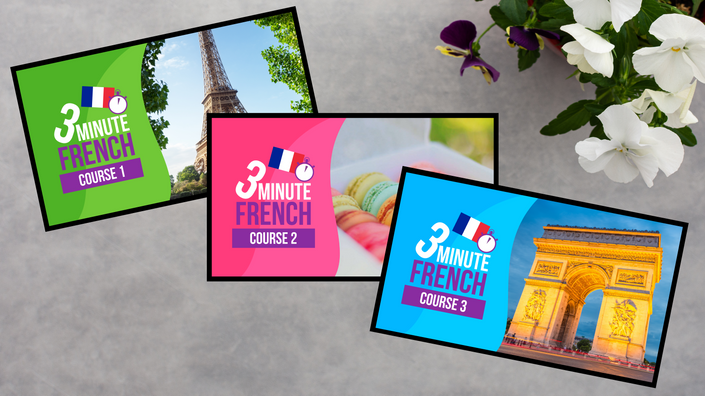
Courses 1, 2 & 3
Get this bundle -
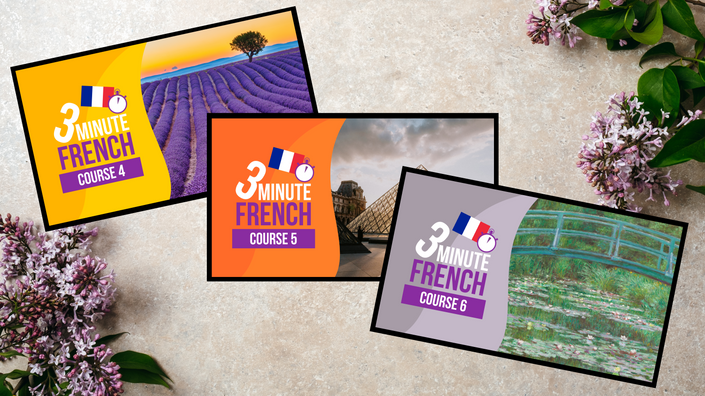
Courses 4, 5 & 6
Get this bundle -
Courses 7, 8 & 9
Get this bundle
Course 2, Building Structures and grammar courses
-
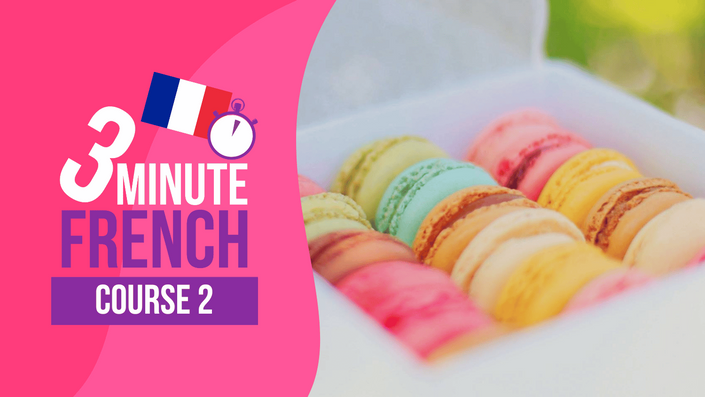
Course 2
Get this course -
Building Structures
Get this course -
Quick Guide
Get this course
All my French courses
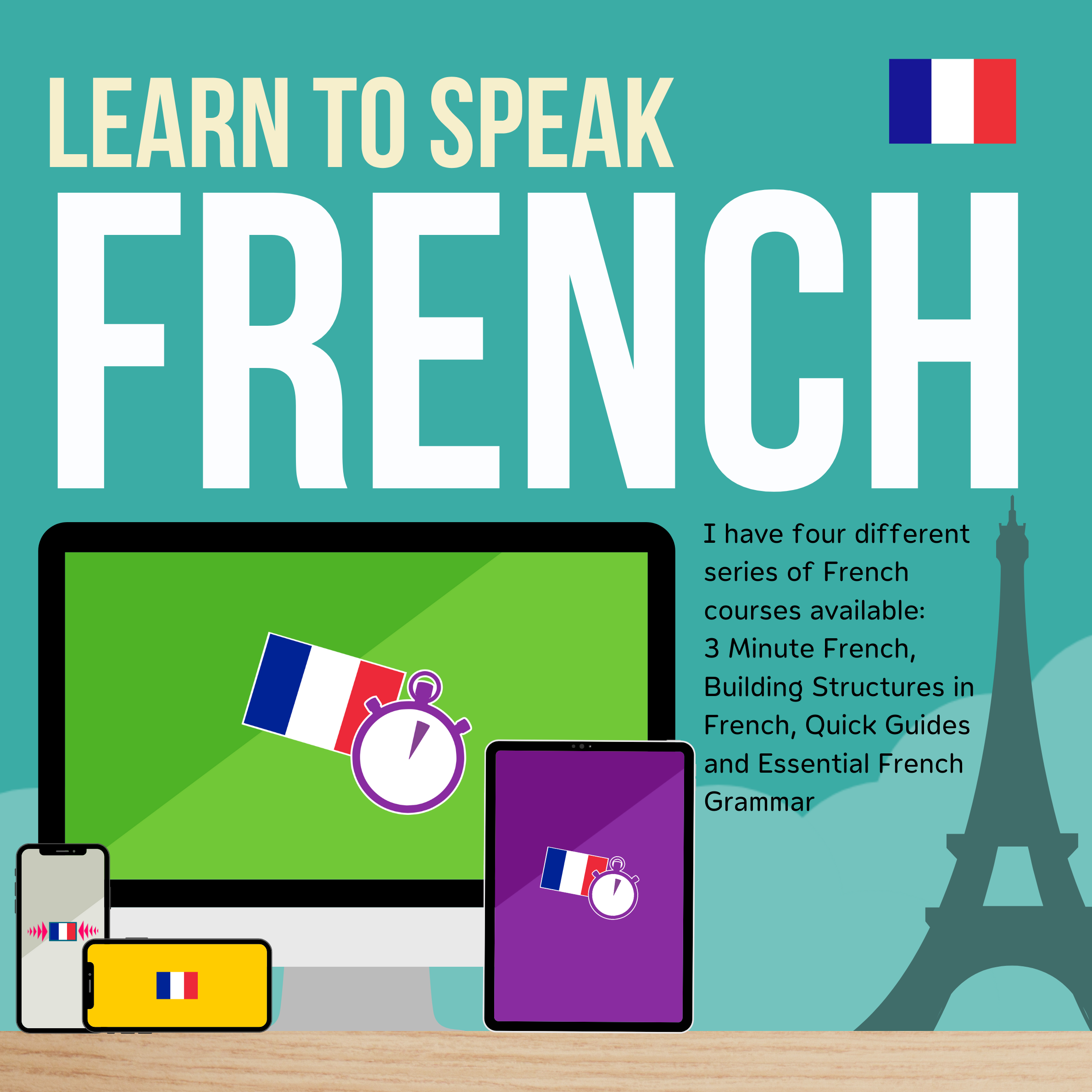
Building Structures in French
Quick Guides
French grammar
Essential French grammar - Future | Conditional | Imperfect
All my Spanish courses
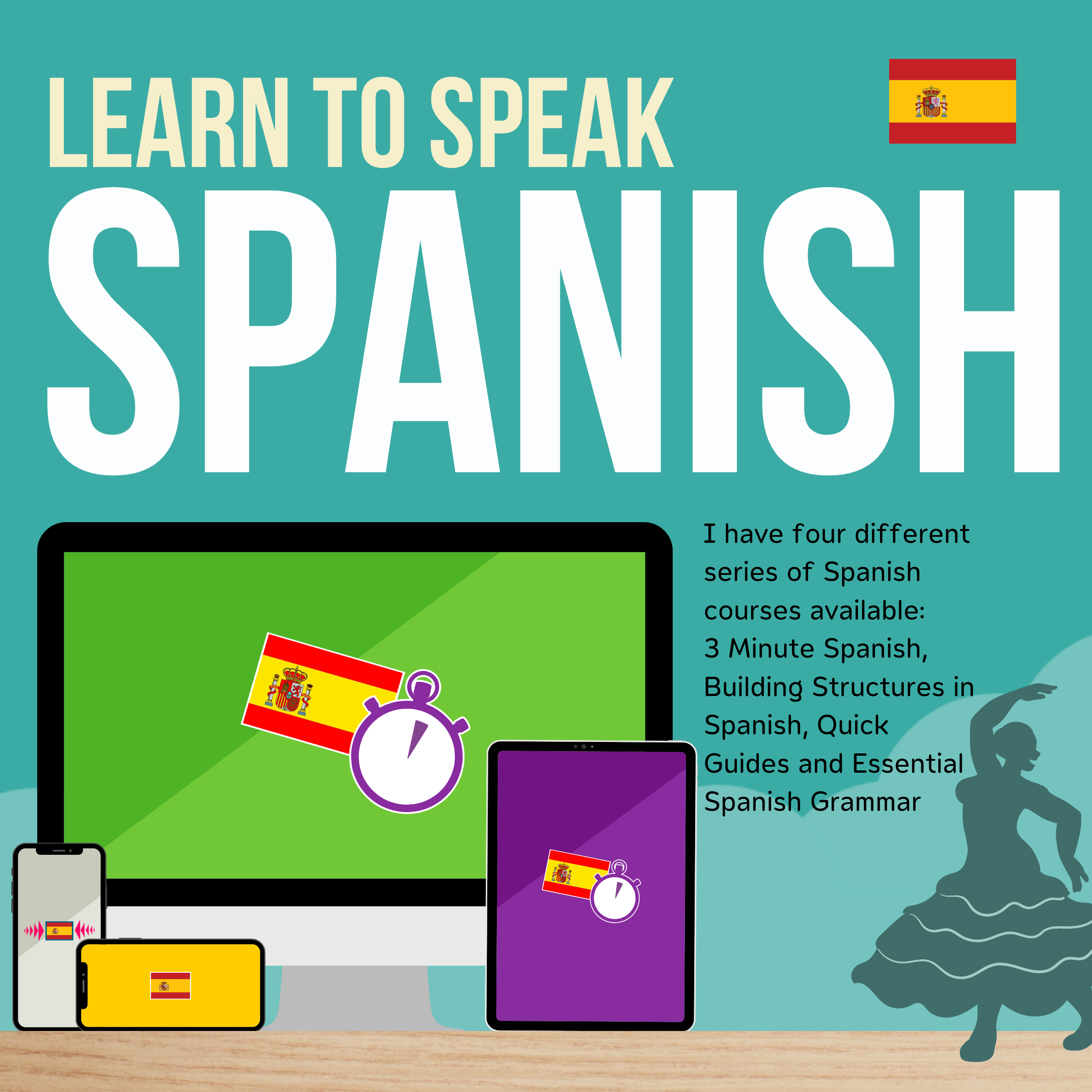
Building Structures in Spanish
Quick Guides
Spanish grammar
Essential French grammar - Future | Conditional | Imperfect
All my German courses
Building Structures in German
Quick Guides
German grammar
Essential French grammar - Future | Conditional | Imperfect
All my Italian courses

Building Structures in Italian
Quick Guides
Italian grammar
Essential French grammar - Future | Conditional | Imperfect
All my Portuguese courses

Building Structures in Portuguese
Quick Guides
Portuguese grammar
Essential French grammar - Future | Conditional | Imperfect
